Search Results
Showing results 141 to 160 of 211
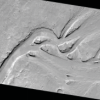
Mars from Above: Carving Channels
Source Institutions
In this activity, learners create channel features with flowing water, comparing their observations to real images of Mars and Earth taken by satellites/orbiters.

Space Stations: Measure Up!
Source Institutions
In this activity, learners work in pairs to measure each other's ankles with lengths of string.

Radar Mapping: What's in the Box?
Source Institutions
In this activity, learners mimic remote sensing. Learners use a stick to measure the distance to a "planet surface" they cannot see, and create their own map of the landscape.

Toilet Paper Solar System
Source Institutions
In this activity, learners build a scale model of the solar system using a roll of toilet paper.

The Thousand-Yard Model
Source Institutions
This is a classic exercise for visualizing the scale of the Solar System.
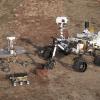
Rover Races
Source Institutions
In this activity, learners experience some of the challenges of "tele-operating" a robotic vehicle on another planet when they design and execute a series of commands to guide a human "rover" through

Mystery Matter
Source Institutions
This interactive demonstration reintroduces learners to three states of matter (solid, liquid, gas), and introduces them to a fourth state of matter, plasma.
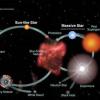
Supernovae in the Lives of Stars
Source Institutions
Many people think the different stages in the life of a star are actually different types of stars, rather than just stages in the life of a single star.
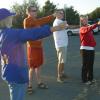
Does the Moon Rotate?
Source Institutions
This fun and simple hands-on astronomy activity lets learners make 3-dimensional models of the Earth and Moon.
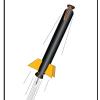
Foam Rocket
Source Institutions
In this activity, learners work in teams build and launch rubberband-powered foam rockets.
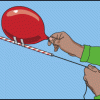
Rockets Away
Source Institutions
In this activity, learners build a simple "rocket" with ordinary household materials to demonstrate the basic principles behind rocketry and the principle of reaction.

Mars Perseverance Activity: Areology
Source Institutions
In this activity, learners take core samples of candy bars with a straw and carefully observe & excavate their sample, modeled after what the NASA Perseverance rover will do on Mars.

Space Origami: Make Your Own Starshade
Source Institutions
In this activity, learners cut out and fold their own collapsible origami starshade, an invention that shields a telescope's camera lens from the light of a distant star so that NASA scientists can ex

Build the Big Dipper
Source Institutions
Learners use simple materials to construct a model the Big Dipper. Learners hang the model from a doorway or ceiling and look up at it to see the constellation as seen from Earth.

Shaving Cream Nebula Prints
Source Institutions
In this activity, learners will swirl paint into shaving cream to make an extravagant nebula print.

Geyser
Source Institutions
This Exploratorium activity can be used in many contexts because geysers are great opportunities for learning about heat and temperature changes as well as geological/space science phenomena.
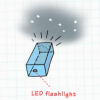
Star Power
Source Institutions
In this activity, learners create a star show and discover how they can prevent light pollution. Using simple materials, learners first design constellation boxes.
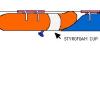
Balloon Staging
Source Institutions
In this activity, learners simulate a multistage rocket launch using party balloons, fishing line, straws, and a plastic cup.
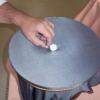
Gravity and Falling
Source Institutions
This fun and simple hands-on astronomy activity lets learners experiment with a bucket, stretchy fabric, marbles, and weights to discover some basics about gravity.

How Do We Find Planets Around Other Stars?
Source Institutions
This fun and simple hands-on astronomy activity describes techniques scientists use to find planets orbiting other stars.
